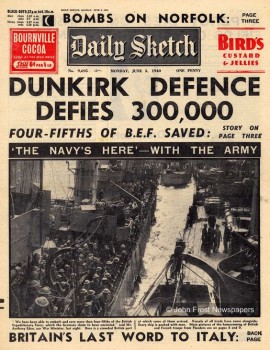If lists make you happy, fine,but as in your previous reviewing, just throwing out names of other films doesn't ultimately convey that much info. Several of those are fine films, several are not, but none outweighs Nolan's achievement in Dunkirk.
There are many interviews about Dunkirk. Kenneth Branagh gives a particularly good one HERE. What a very articulate man he is. So is Mary Rylance; in fact what Finn Whitehead and Harry Styles say is very good too, in another interview. It's evident as intense an experience of filmmaking as this gave the actors clear ideas of what they were doing.




 Reply With Quote
Reply With Quote

Bookmarks